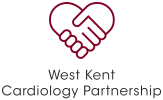Who is the HeartScreen Programme designed for?
Heart disease can affect anybody and the programme is appropriate for all adults living in the UK who are concerned about having heart disease now or developing it in the future. There are, however, certain groups of patients who are at increased risk of coronary artery disease. These include:
• Current or past smokers
• Those with a family history of coronary disease or sudden death
• Those with a history of hypertension
• Those with high cholesterol levels
• Diabetic patients
• Men over the age of 40
• Women over the age of 50
Patients with one or more of the ‘at risk’ factors listed above are those who would particularly benefit from cardiac screening.
Heart disease is very common: do you know your own risk of having or developing heart disease?
Cardiovascular disease is the most common and significant serious disease in the developed world. In the UK cardiovascular disease remains the most common cause of death affecting approximately 30% of the population. The majority of these deaths, approximately 20% of men and 17% of women are caused by coronary artery disease.
Currently, approximately 3.4 million adults in the UK have established coronary artery disease. It is often known as the ‘silent killer’ as patients are sadly often not aware that they have a heart problem until they suffer a fatal heart attack. In many cases, specialist screening may have identified early signs for coronary disease and/or risk factors which contribute to the development of coronary artery disease later in life. Early specialist treatment and education of patients at risk can reduce the risk of adverse cardiac events occurring in the future.
We are fortunate at West Kent Cardiology to have the technology and skills to screen apparently healthy people and identify those at risk. In the majority of cases, we are able to reassure patients and offer them the peace of mind that they are low risk of cardiac disease but for a minority, early detection and management could prove to be a life-saver in the future.
Why should I have a HeartScreen?
Unlike many other medical conditions, most potential cardiac problems can be detected and treated at an early stage to reduce the occurrence of serious cardiac events in the future. Patients with early stages of coronary disease often do not experience any symptoms so whilst you may currently feel fit and well, a comprehensive cardiac screen would give you the peace of mind that you are at risk. Similarly, if we do identify factors that might lead to cardiac problems in the future you can be reassured that we will recognise and treat them now to reduce your risk in later life.
Do fit people need a HeartScreen?
In many parts of the developed world, particularly in Italy and parts of the USA, it is now routine to screen young people undertaking competitive sport for conditions that might place them at risk of ‘Sudden Cardiac Death in the Young’. Whilst this is an uncommon condition, affecting, in those aged 35 years or less, approximately 1 person in 100,000 per year it is devastating when it does occur. Sports activity in adolescents and young adults is associated with an increased risk of sudden cardiac death. Sudden cardiac death is predominantly caused by pre-existing cardiac abnormalities rather than the sporting activity itself.
What does the HeartScreen consist of?
1. Consultation and medical examination
A detailed consultation and medical examination with one of our specialist cardiac doctors which will include:
• Detailing any current cardiac symptoms
• An analysis of your cardiac risk factor profile
• Summary of past medical history and current medications
• A detailed cardiovascular examination
2. Specialist cardiac investigations
Following the initial consultation patients will undergo an intensive series of outpatient investigations which will comprehensively assess the overall structure and function of the heart. These will include:
• Electrocardiogram (ECG)
• Cholesterol test
• Echocardiogram
• Exercise stress test
• CT coronary calcium score
3. Review and report
Once all or your investigations have been completed you will have a summary consultation with your doctor to review the results and identify any current or potential problems with your heart in the future.
If your HeartScreen suggests that you may require additional cardiac investigations or treatment these will be discussed with you and a management plan recommended.
A detailed report will be compiled for you to keep, summarising your HeartScreen results along with recommendations and advice for the management of current problems and minimising the risk of future coronary events.
How long will the HeartScreen take?
As you will have seen the cardiac screen incorporates a number of investigations which take varying degrees of time to undertake. Whilst we will try and reduce the time you spend with us to a minimum in reality you should expect to be with us for approximately 2 hours.
When are HeartScreen appointments available?
We offer a range of screening clinics each week including some evening and Saturday appointments to accommodate people with busy schedules.
What happens if the HeartScreen detects a problem with my heart?
The results of your investigations will be discussed in detail with you in your follow up consultation with your cardiac specialist. He will give you recommendations as to whether you need any further more specialist tests or treatments and this will be detailed in your HeartScreen report. We recommend that this is discussed with your General Practitioner. If necessary and appropriate your General Practitioner could then refer you to one of our Consultant Cardiologists for more detailed review. Your HeartScreen doctor would also be happy to make this referral for you at your request.

